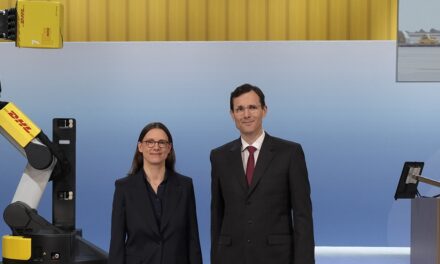
Deutsche Post chief backs opposition’s VAT proposal
Germany’s opposition Christian Democratic Union, the favourites to win federal elections expected in September, have won the powerful support of one of the most prominent German businessmen for an increase in value added tax to help offset the country’s high labour costs.
Klaus Zumwinkel, chief executive of Deutsche Post, Europe’s biggest postal group, called for an increase in VAT from 16 to 20 per cent in order to finance the country’s creaking social security system, which is funded by levies on employees and employers.
Non-wage labour costs are widely regarded as the biggest obstacle to cutting unemployment from a post-war high of almost 5m.
In an interview with the Financial Times, Mr Zumwinkel said that Germany’s cradle-to-grave welfare system, dating from the time of Bismarck in the 19th century, “has to be dramatically changed. . . The only solution is an increase in VAT. It has to go to 20 per cent”.
His comments come as Angela Merkel, the CDU leader, prepares to unveil today her party’s election platform. The CDU is expected to propose raising VAT to 18 per cent, which would raise Euros 16bn (Dollars 19bn, Pounds 11bn).
CDU leaders had bickered over whether some of the money should flow to financially strapped regional governments. But Mr Zumwinkel argued cutting non-wage costs would boost demand for labour significantly. By reducing costs, the money would flow back to companies and the pockets of consumers, thus supporting domestic demand, he said.
Mr Zumwinkel’s intervention carries weight not only because he is one of the longest serving chief executives of a German blue-chip, having led Deutsche Post for 14 years. He has also had significant dealings with successive governments; the state once totally owned the postal operator and still holds a 45 per cent stake.
However, Mr Zumwinkel said he opposed plans by Mrs Merkel to reimpose capital gains tax on companies that sold stakes in other groups. “That would be wrong. We need free markets, be it labour markets or capital markets.”
The change, which came into effect in 2002, was heralded as one of the most important tax changes introduced by the centre-left government of Gerhard Schroder, chancellor, and has encouraged the unwinding of the country’s tight web of cross-shareholdings.
Mr Zumwinkel also called for a radical reorganisation of public sector banks, which have more than 50 per cent of the fragmented German market, saying they needed to be fully priv-atised.












